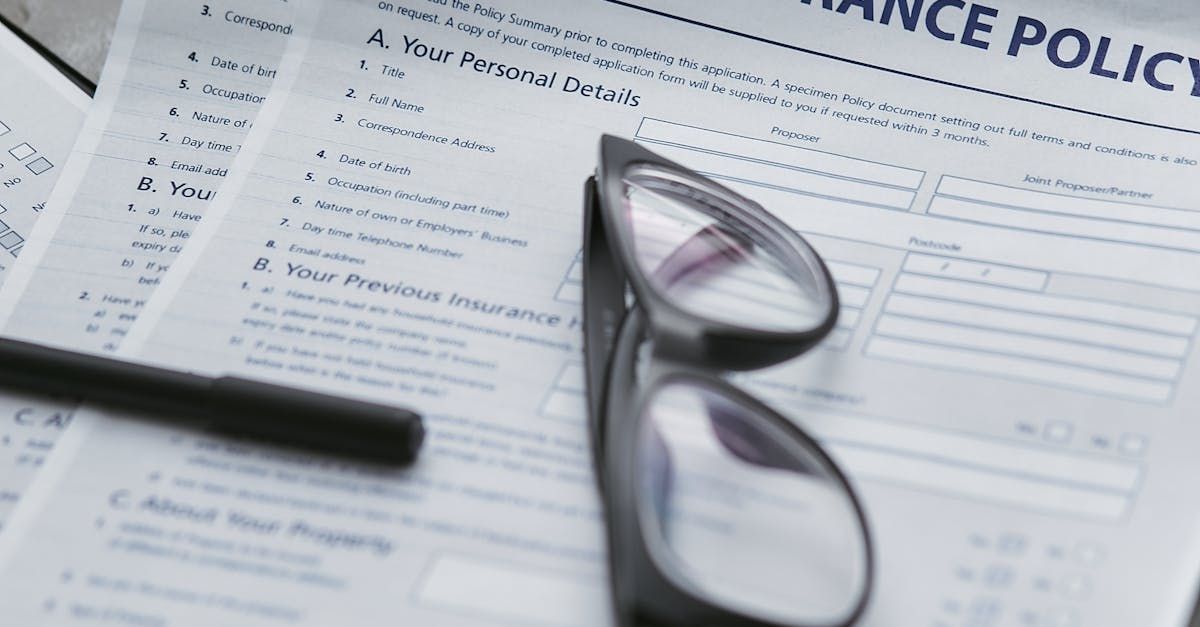Key Terms and Coverage
As a homeowner in Florida, understanding your insurance policy is crucial for protecting your property from the unexpected. From hurricanes to floods, the Sunshine State presents unique challenges that require comprehensive coverage. Navigating your homeowners insurance policy can be daunting, but grasping the key terms and coverages will empower you to make informed decisions and ensure you're adequately protected.
Key Terms in Your Homeowners Insurance Policy
- Deductible: The deductible is the amount you must pay out-of-pocket before your insurance coverage kicks in. Florida policies often include separate deductibles for hurricanes and other perils, so it's essential to understand how much you'll be responsible for in the event of a claim.
- Peril: A peril is a specific risk or cause of loss covered by your policy, such as fire, theft, or windstorm. In Florida, perils like hurricanes and floods are of particular concern, so understanding what is covered under your policy is critical.
- Exclusions: Exclusions are specific perils or types of damage that your policy does not cover. Common exclusions in Florida include flooding and earthquake damage. If you're in an area prone to these risks, you'll need to consider additional coverage.
- Coverage Limit: This is the maximum amount your insurance company will pay for a covered loss. It's essential to ensure your coverage limits are sufficient to rebuild your home and replace your belongings in the event of a total loss.
- Replacement Cost vs. Actual Cash Value (ACV): Replacement cost coverage pays to repair or replace your damaged property with new materials of like kind and quality, without deduction for depreciation. ACV, on the other hand, pays to replace your property, but with a deduction for depreciation. Understanding the difference can significantly impact the amount you receive in a claim.
- Endorsement: An endorsement, or rider, is an amendment to your policy that changes or adds coverage. For example, you might add an endorsement to cover expensive jewelry or upgrade your policy to include sewer backup coverage.
- Liability Coverage: This part of your policy covers you if someone is injured on your property and decides to sue. It can help pay for legal fees, medical bills, and damages you're found responsible for.
- Loss of Use Coverage: Also known as Additional Living Expenses (ALE), this coverage helps pay for living expenses if your home is uninhabitable due to a covered loss. This can include hotel stays, meals, and other necessary costs while your home is being repaired.
Key Coverages in Your Homeowners Insurance Policy
- Dwelling Coverage: This is the core of your homeowners policy, covering the structure of your home, including the walls, roof, and built-in appliances. In Florida, this coverage is crucial due to the risk of hurricane damage. Ensure that your dwelling coverage is sufficient to rebuild your home in the event of a total loss.
- Other Structures Coverage: This covers detached structures on your property, such as fences, sheds, or a detached garage. These structures are often exposed to the same risks as your home, so it's important to have adequate coverage.
- Personal Property Coverage: This covers your belongings, such as furniture, clothing, and electronics. In Florida, where hurricanes can cause widespread damage, it's essential to inventory your possessions and ensure you have enough coverage to replace them.
- Windstorm Coverage: Florida is notorious for its hurricanes, and windstorm coverage is a must. While some policies include windstorm coverage, others may require you to purchase it separately. Make sure you understand whether your policy covers wind damage or if you need to add this protection.
- Flood Insurance: Standard homeowners insurance policies do not cover flood damage, which can be a significant risk in many parts of Florida. If you live in a flood-prone area, purchasing a separate flood insurance policy through the National Flood Insurance Program (NFIP) or a private insurer is essential.
- Hurricane Deductible: Florida homeowners policies often include a separate deductible for hurricane damage, typically calculated as a percentage of your home's insured value. This can range from 1% to 10%, so be sure to review your policy and plan for this out-of-pocket expense if a hurricane strikes.
- Water Damage Coverage: While some water damage, such as from a burst pipe, may be covered, other types, like damage from a slow leak or sewer backup, may not be. Consider adding endorsements if you're concerned about these risks.
- Sinkhole Coverage: Florida is one of the few states where sinkholes are a significant concern. While your standard policy may cover catastrophic ground collapse, you might need additional coverage for less severe sinkhole damage.
Reviewing and Updating Your Policy
It's essential to review your homeowners insurance policy annually and after significant life changes, such as home renovations or purchasing valuable items. Make sure your coverage limits are up-to-date and that you're aware of any changes in your policy terms or exclusions.
Conclusion
Understanding your homeowners insurance policy is the first step toward ensuring your home and belongings are protected. In Florida, where unique risks like hurricanes, floods, and sinkholes are a reality, being informed about key terms and coverages can make all the difference when disaster strikes. If you have questions or need assistance with your policy or a claim, consider consulting a public adjuster to help you navigate the complexities of homeowners insurance in Florida.
By staying informed and proactive, you can have peace of mind knowing that you're well-prepared for whatever comes your way.



